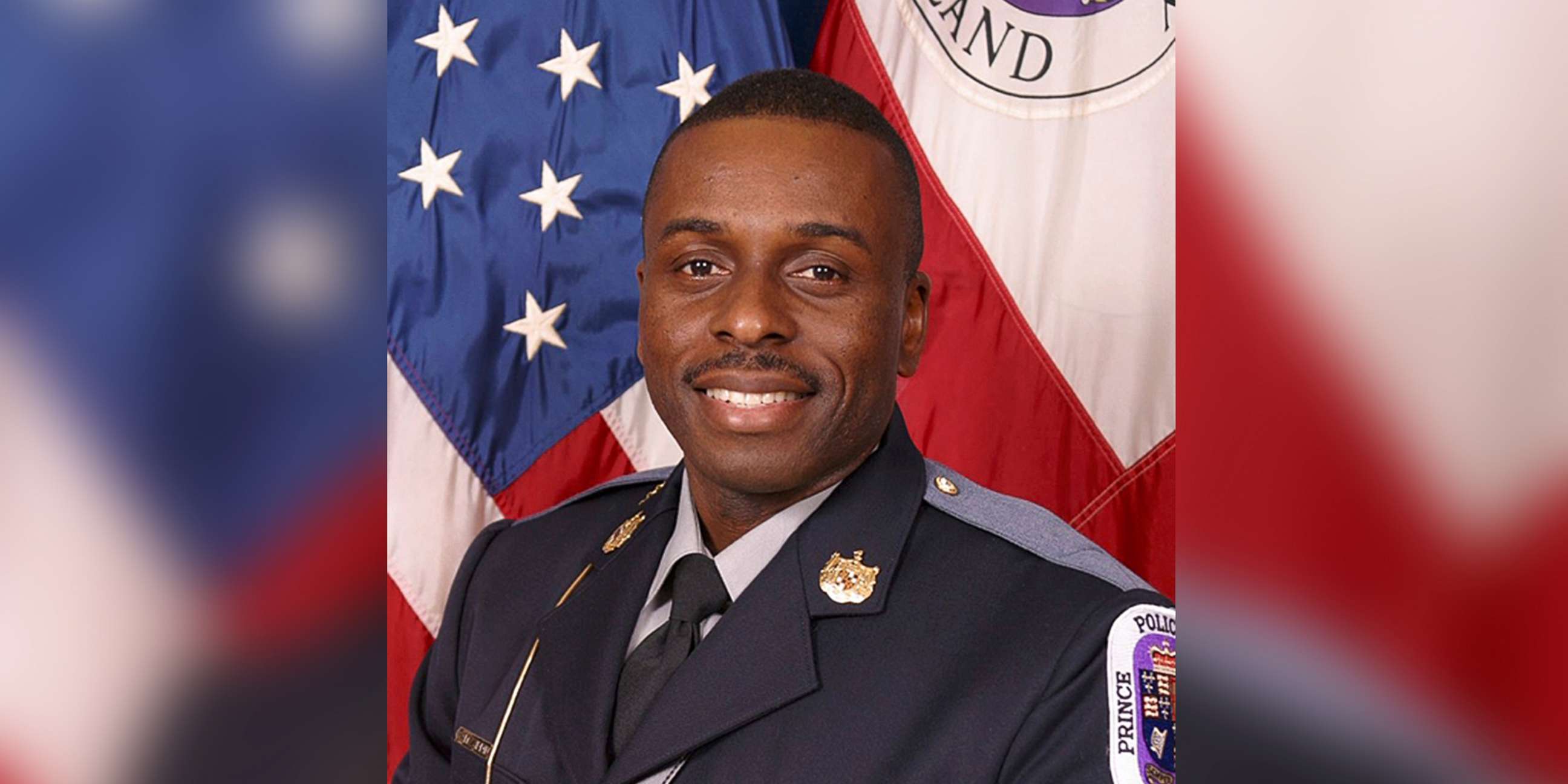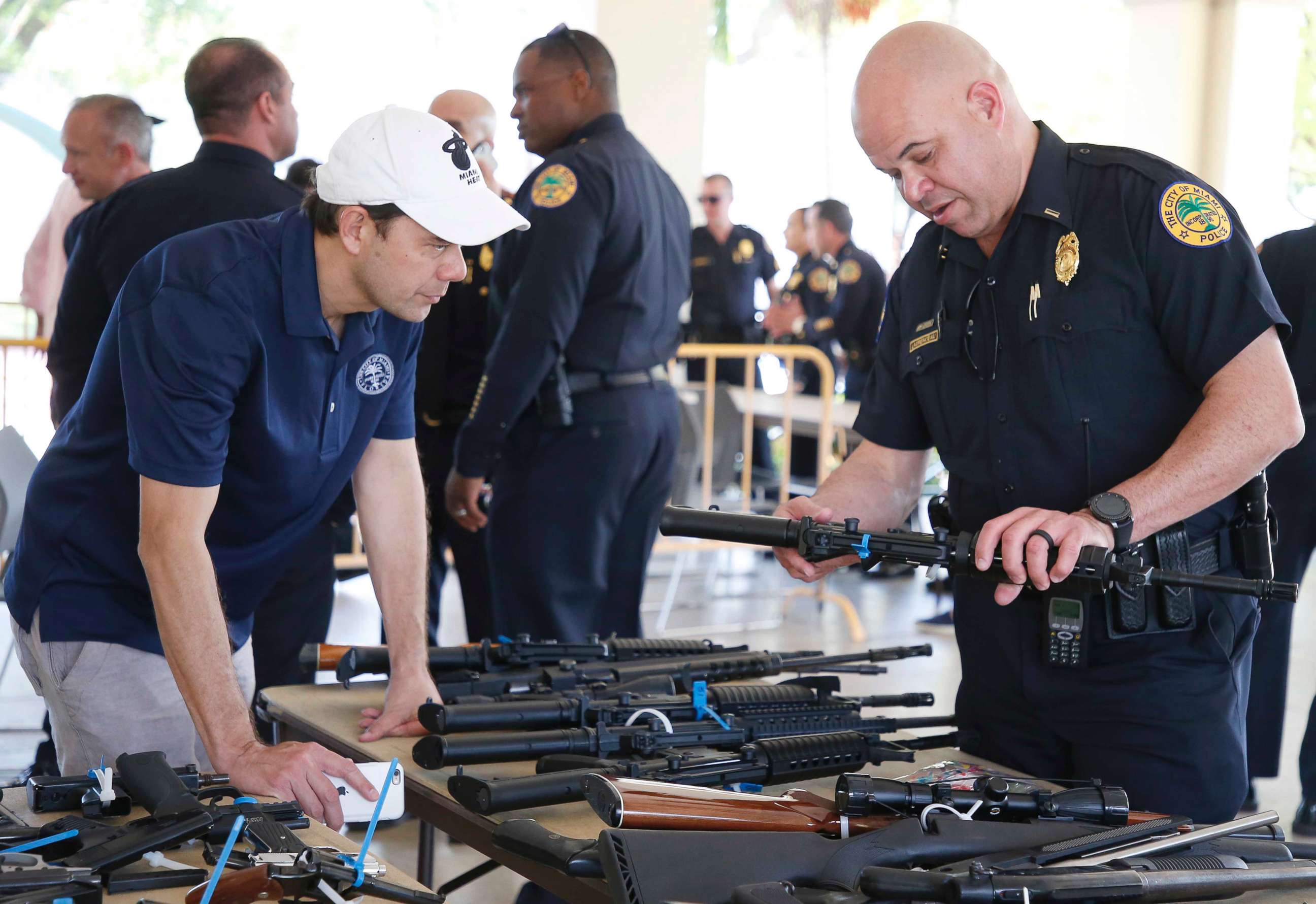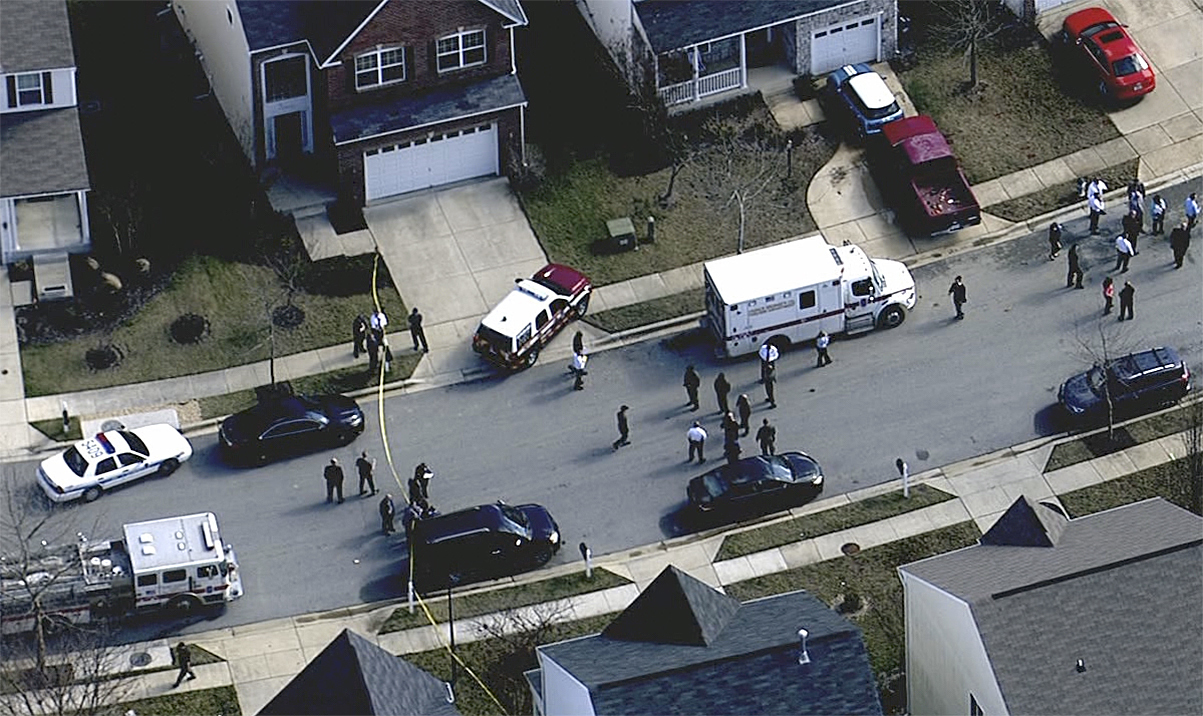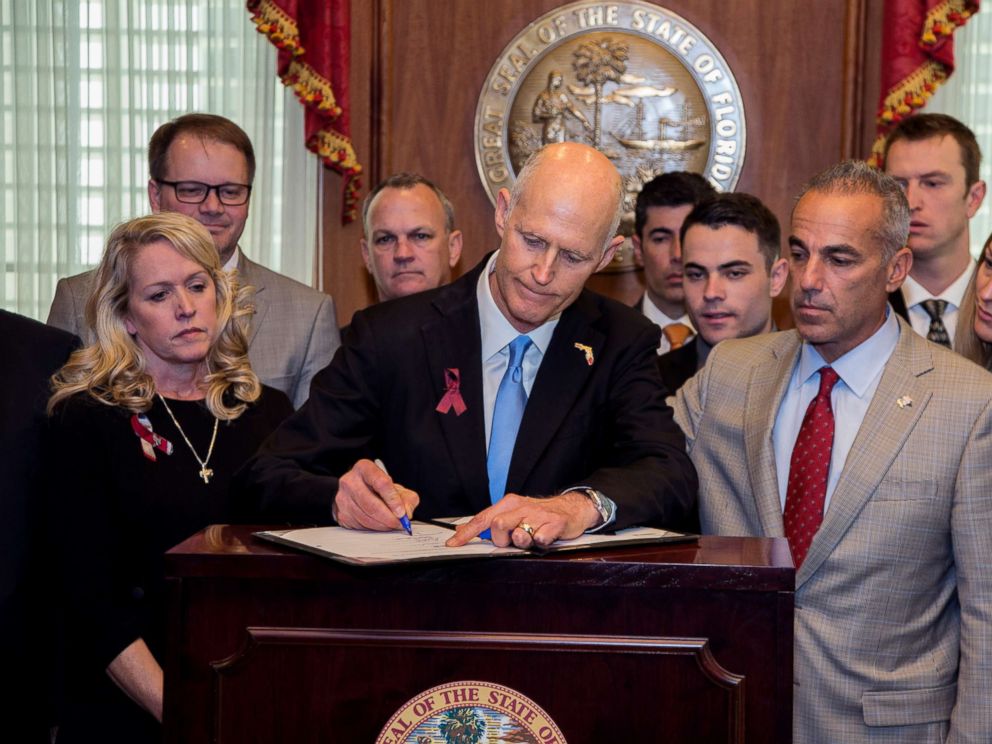Gun laws intended to protect domestic violence victims also a boon for cops
Comes amid renewed calls for gun law reforms in the wake of Parkland.
A woman reported her threatening husband to police three times in the span of two months. Warrants were ordered for him and she was granted two iterations of a protective order during that time.
Police had checked the house for him, and they knew he had a gun.
The woman even enlisted the help of an off-duty police officer who lived down the street to help her as she got the locks changed on their house.
But the husband returned to the house and opened fire at the off-duty officer.
The death of Cpl. Mujahid Ramzziddin in Prince George's County, Maryland, in February, was just one recent example of an officer dying as a result of what multiple law enforcement experts view as one of the most dangerous situations for police: domestic disputes.

“Once an officer arrives on scene in response to a domestic call, tensions [and] emotions, they're already at a really, really high level so they're walking into sometimes some incredibly intense situations and then they're trying to decipher fact from emotion and other considerations,” said Steve Groeninger, communications director for the National Law Enforcement Officers Memorial Fund.
As more states take action to strengthen their domestic violence laws and regulations about protectively removing guns from offenders, the ripple effects include more protection for responding police officers and potentially prevented mass shootings.
John Cohen, a former police officer who is currently an ABC News contributor, said that while the states that have enacted laws addressing domestic violence concerns will also be simultaneously helping stop violence overall.
“It’s becoming more widely acknowledged by law enforcement professionals that acts of violence, whether they're related to domestic violence or some other mass casualty event, can be prevented if high-risk people are prevented from possessing or obtaining firearms,” Cohen said.

Danger police officers face
According to data collected by the National Law Enforcement Officers Memorial Fund, domestic dispute calls had the highest percentage – 29 percent – of calls for service that resulted in officer deaths. From 2010 to 2016, the group reports there were 133 officers killed while responding to a call for service, 38 officers of which died responding to domestic disputes.
One of the biggest factors that make such calls particularly threatening is that in many cases, police do not know if they are walking into a situation where the suspect is armed.
“People understand that when the police show up [to a domestic violence call] someone's probably going to get arrested, and if they possess a gun that's a very dangerous situation and it’s not uncommon for the anger that was being focused on the spouse or the boyfriend or girlfriend to then be focused on the police officer and that can result in physical violence or the police officer being shot,” Cohen said.
The danger is heightened by “the combination of the volatility of the situation and the fact that the police, when they're walking into that situation, they often don’t know if there are guns in the house or not,” he said.
In many cases, the only indications that police have about weapons being involved in the incident would come from any past calls to that residence where a gun was involved or if the person who called 911 for help explicitly stated that there was a gun involved, a spokesperson for the National Law Enforcement Officers Memorial Fund said.

New laws
Cohen said that because situations that involve domestic violence offenders have historically shown to offend repeatedly, and that such situations tend to escalate, taking weapons away early on can help beget future incidents.
And that’s a good thing for both the individuals directly involved in the situation and the first responders, he said.
“When a police officer concludes that a domestic violence situation is escalating into violence, being able to restrict access to firearms to one or both the individuals not only affords safety to those involved in the station but also may protect officers who respond to future calls,” Cohen said.
According to the Giffords Law Center, there are 27 states that have laws that allow for weapons to be taken away from abusers but only once they have become the subject of a protective order.
And a much smaller number – six -- of states are instituting extreme risk protective orders where either law enforcement officers or family members can report concerns about a gun owner and a judge can approve to have that individual’s guns taken away temporarily without any protective order being in place.
The Giffords Law Center to Prevent Gun Violence points to two mass shooters – Elliot Rodger who killed six in California in 2014, and Jared Lee Loughner who killed six in Arizona in 2011 – as two examples where people close to the shooters had reported concerns in advance of the shootings but were not, at that time, legally able to have their guns taken away.
Another shooter that may have been stopped if such a law was in place? The one who killed 17 people at Marjory Stoneman Douglas High School in Parkland, Florida.
“Nikolas Cruz would have been assessed and deemed to be a high risk for violence and if the law that was recently passed in Florida was in place, police would have potentially been able to restrict his ability or purchase firearms and that could potentially have prevented the attack,” Cohen said.
Florida passed a string of new gun laws in the wake of the Parkland shooting, including extreme risk protection orders which allows law enforcement to petition a court to ban a violent or mentally ill person from having or obtaining firearms.
The National Rifle Association did not respond to requests for comments about the gun laws.

Laura Cutilletta, the legal director for the Giffords Law Center, said that “domestic violence is an area where we see the most bipartisan support for gun laws,” and noted that such support extends into the law enforcement community as well.
“I think that law enforcement very strongly supports domestic violence laws that restrict abusers from obtaining weapons,” Cutilletta told ABC News. “I think that’s because there’s a higher chance of lethality for the victim if the abuser owns a firearm.”
“Law enforcement is concerned because of the lethality [facing] the victims, and secondly, also concerned for the officers responding to the incidents,” she said.